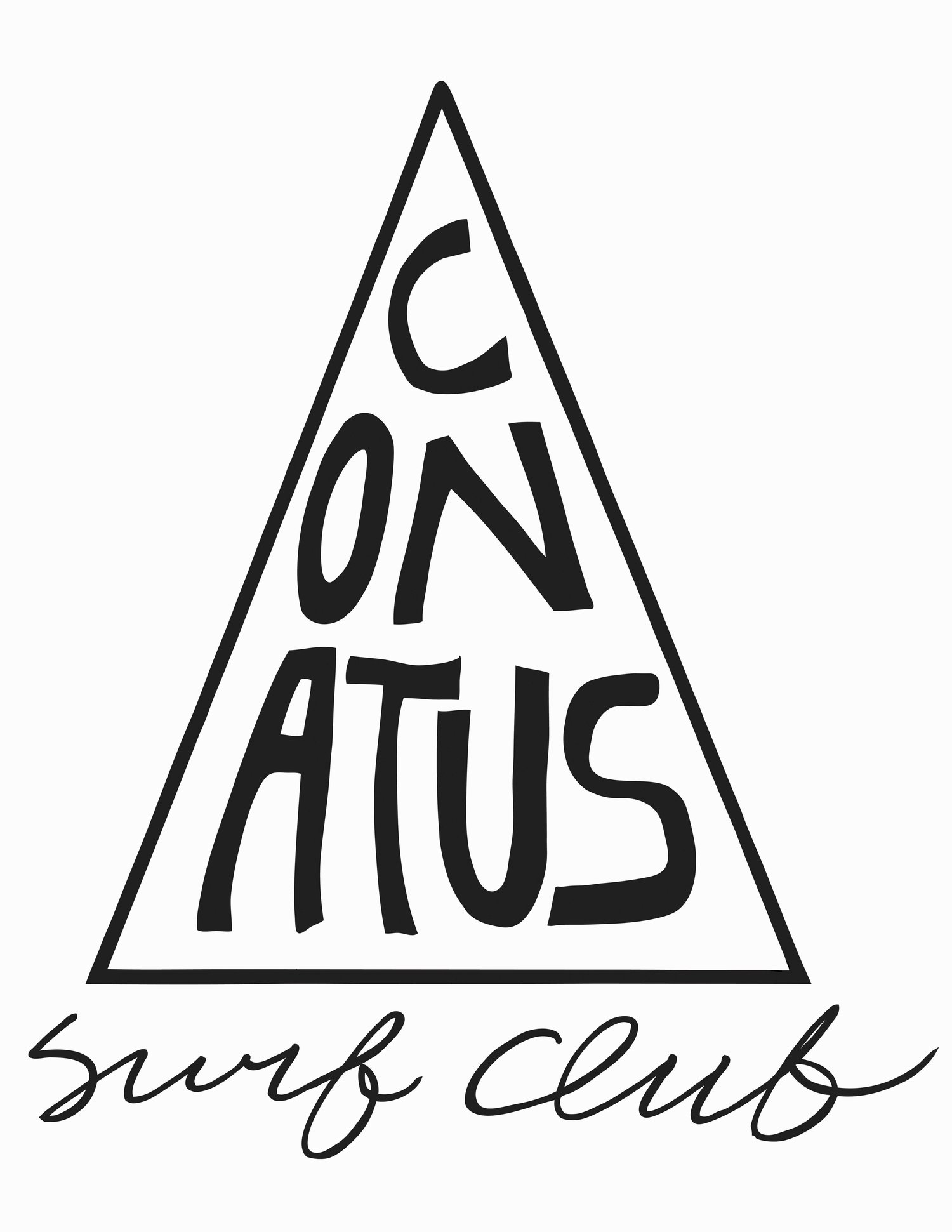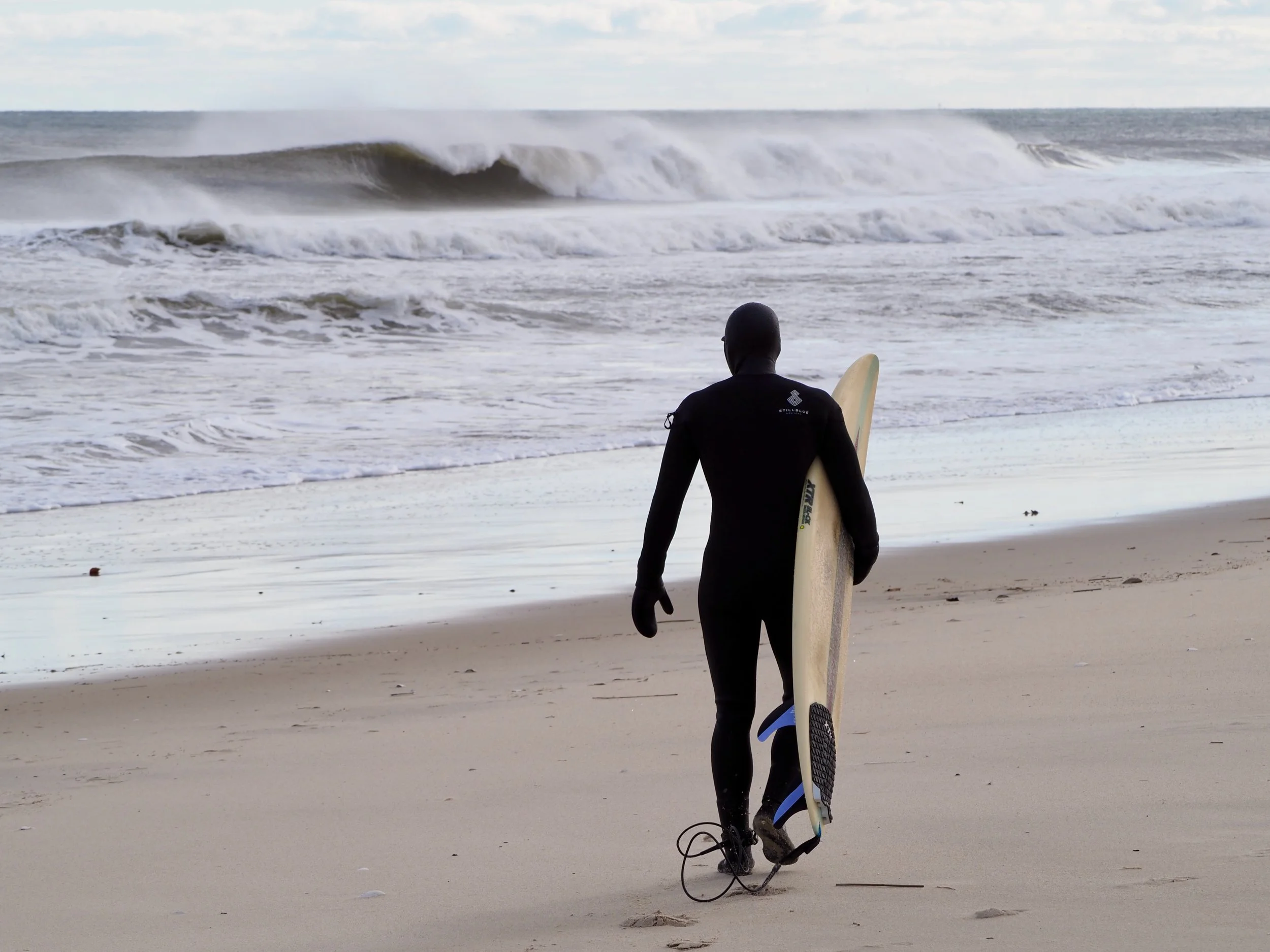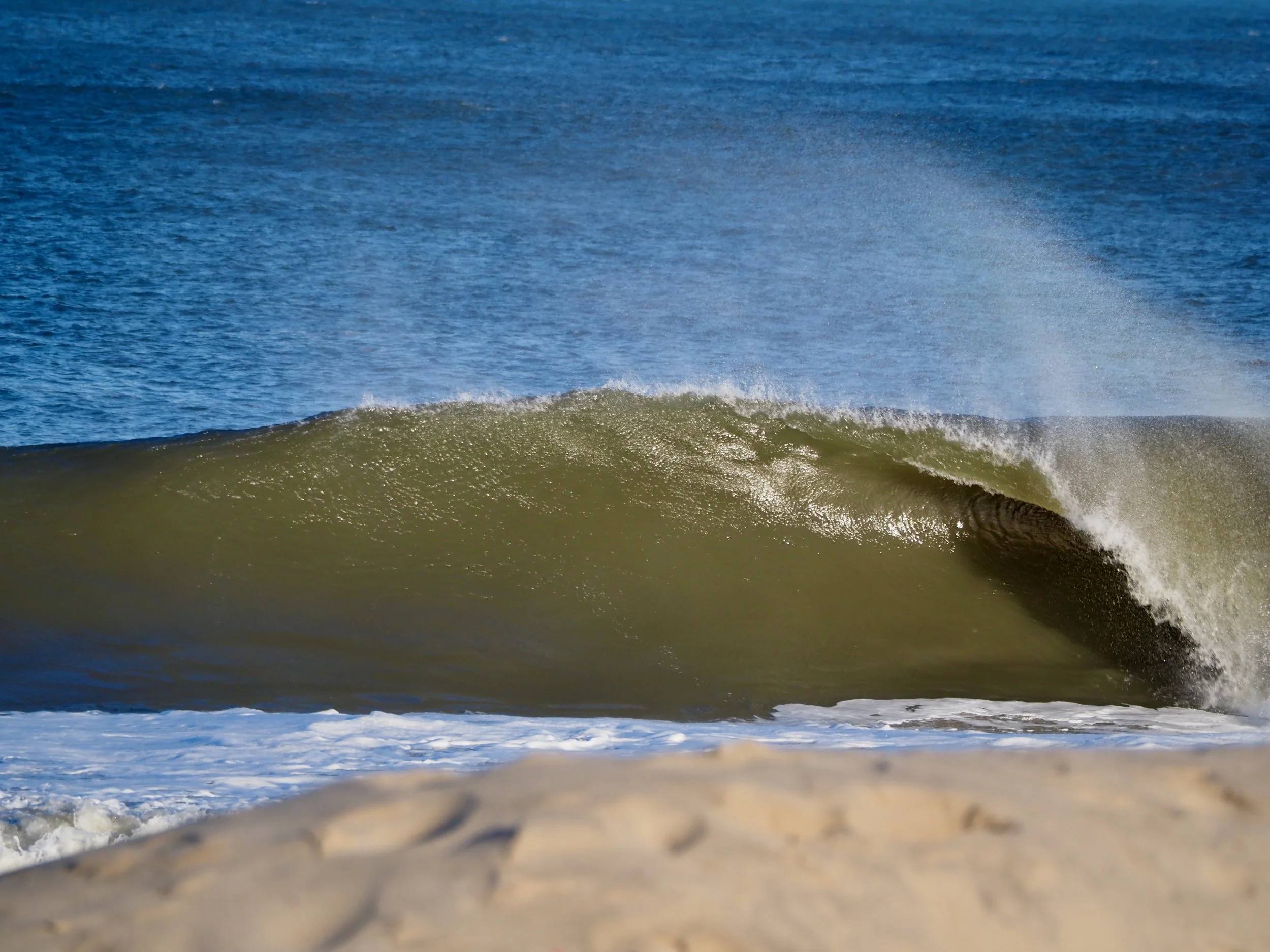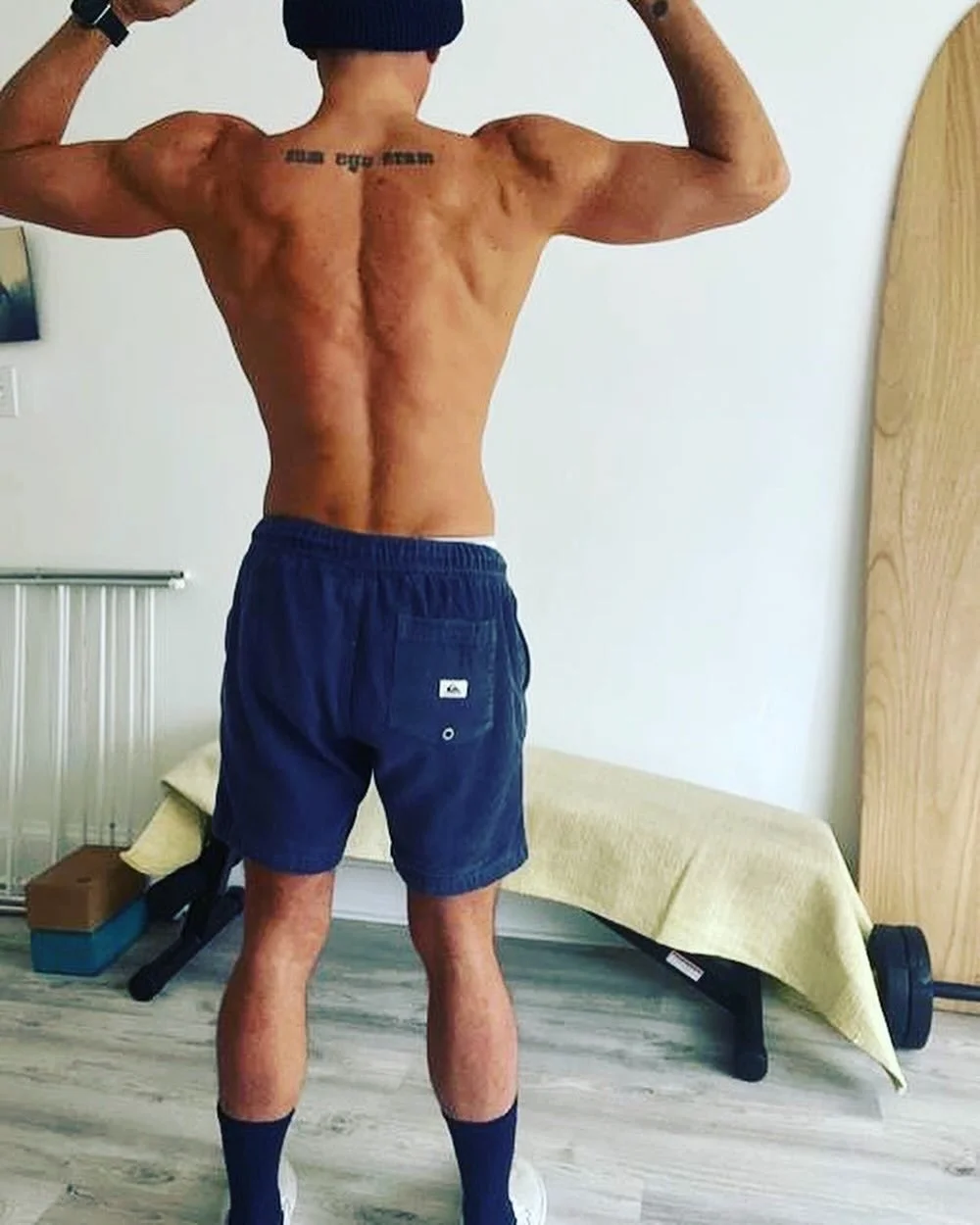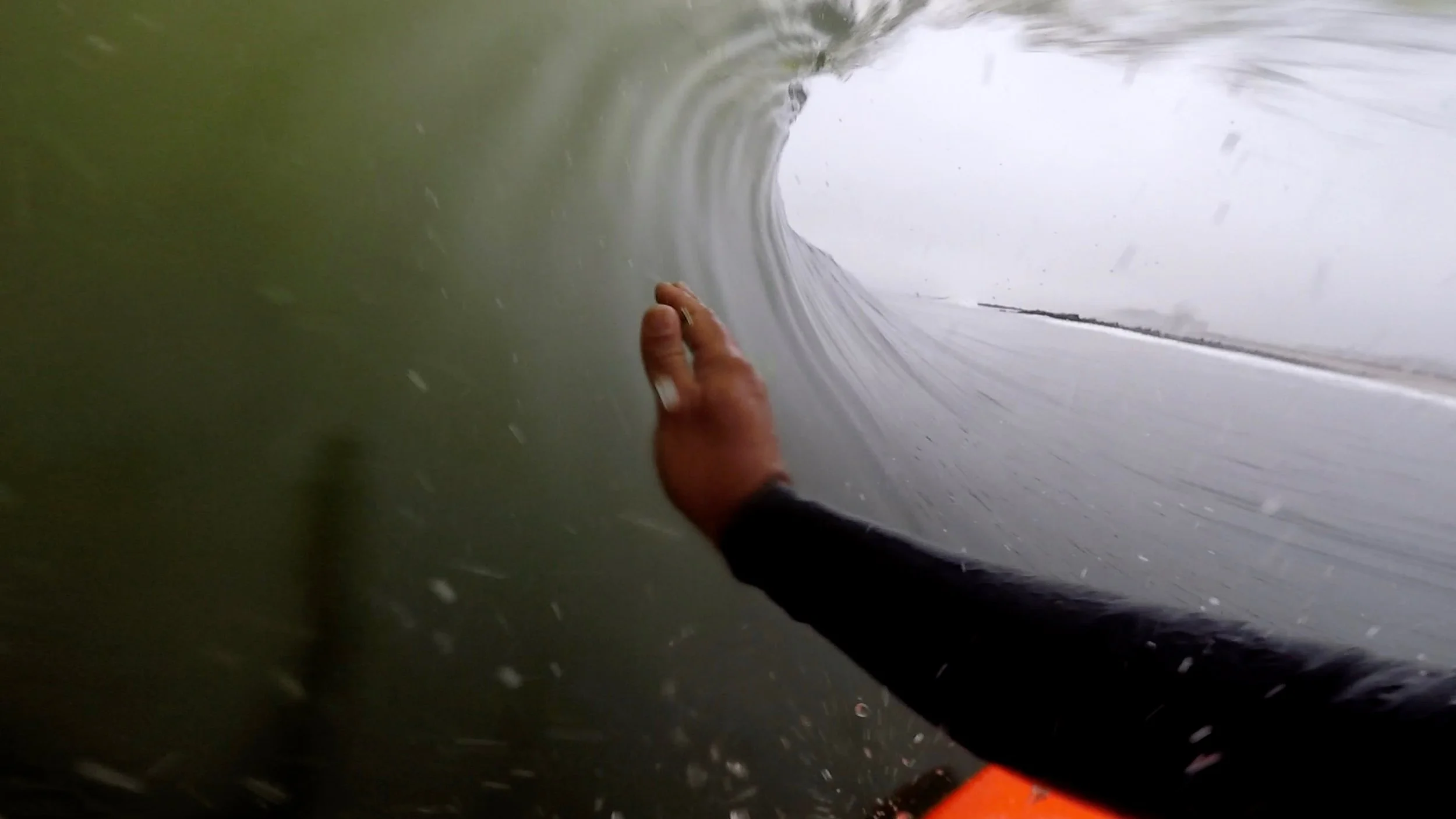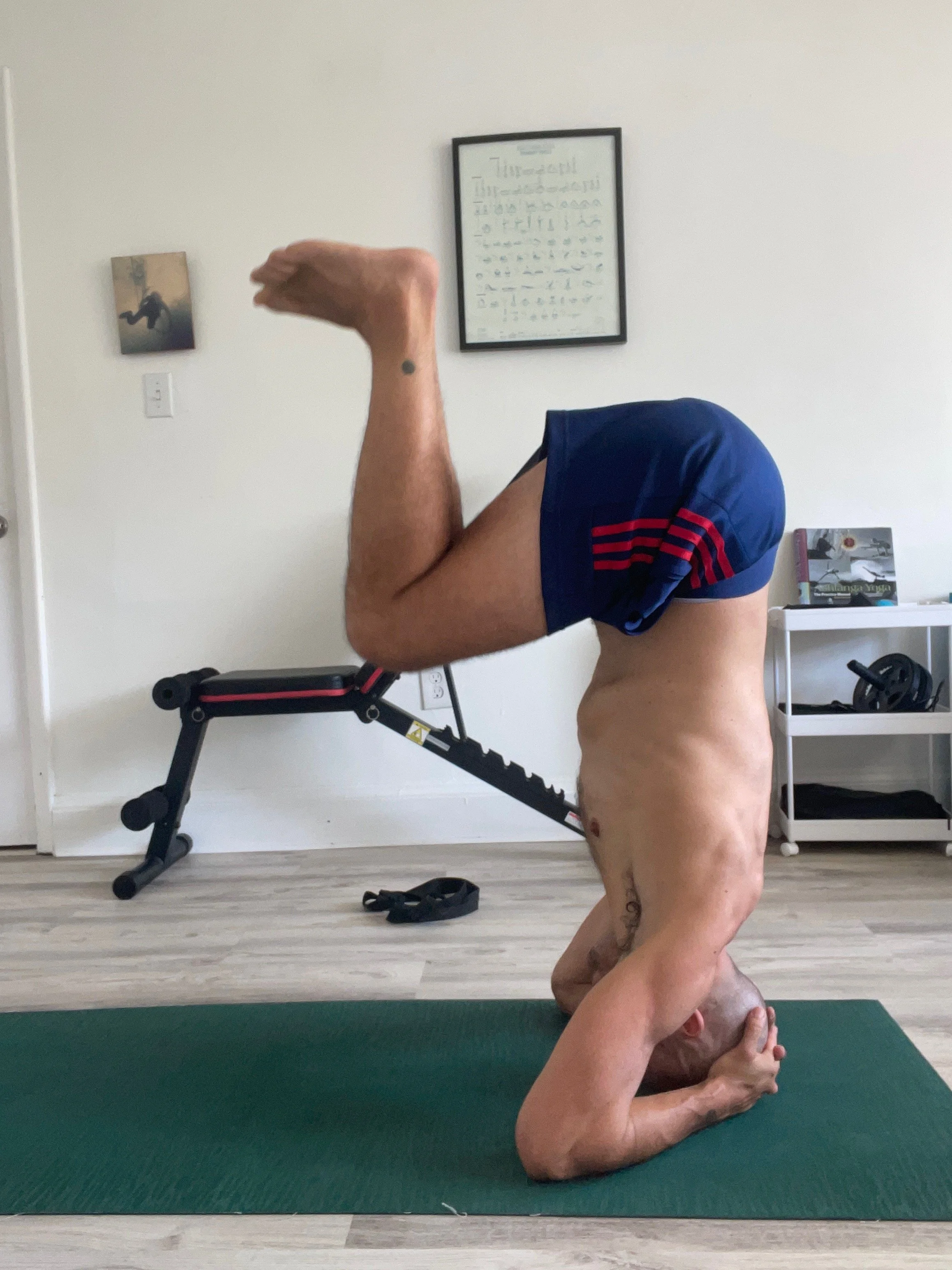Most surf coaching focuses on technique—how to pop up faster, how to read waves better, how to position yourself in the lineup. But after years of teaching surfers and observing my own relationship with challenging conditions, I've noticed something that rarely gets discussed: the profound connection between how you feel in your body and how you approach fear in the ocean.
This isn't about having a "surf body" or looking a certain way in a wetsuit. This is about the subtle but powerful relationship between physical capability and mental confidence when you're paddling out into conditions that genuinely scare you.
The Moment I Realized Physical Confidence Matters
I'll be honest—I spent most of my surfing life avoiding systematic fitness training. I surfed, I stayed generally active, and I told myself that was enough. The ocean would keep me in shape, right?
Before fitness journey.
Then about four years ago, I started training specifically for surfing—not just surfing more, but actually doing structured resistance training and mixing up cardio zones. Nothing fancy. Just showing up consistently and doing the work.
After fitness journey.
The shift became obvious during winter surfing in New York. Full 5mm wetsuit, bigger pumping surf, cold water—the kind of conditions where a wipeout means getting properly worked. And I noticed something: I was just so much less scared of wiping out.
The waves hadn't changed. The consequences of getting worked in 40-degree water were the same. But my internal experience was completely different. The physical confidence in my body had shifted something fundamental about how I approached fear in the ocean.
The Two Layers of Ocean Fear
When we talk about fear in surfing, we often conflate two distinct types of anxiety:
Environmental fear: The rational assessment of objective danger—reef depth, wave size, current strength, the consequences of getting worked. This is healthy fear. This is what keeps you alive.
Capability fear: The uncertainty about whether your body can handle the physical demands of the situation—can you paddle hard enough, recover quickly enough between waves, maintain your technique when you're fatigued and cold.
Here's what most surf content misses: these two layers interact. When you're uncertain about your physical capabilities, your assessment of environmental danger becomes distorted. A wave that's challenging-but-manageable feels genuinely dangerous when you're not sure you can paddle back out after getting worked. A wipeout that would be uncomfortable-but-okay becomes terrifying when you don't trust your body's resilience.
The inverse is also true. When you know—not hope, not think, but actually know—that your body can handle the physical demands, your assessment of environmental danger becomes more accurate. You can distinguish between "this is genuinely too big for my skill level" and "this is just uncomfortable and scary."
The Myth of "Surfing Yourself Into Shape"
The surf industry perpetuates this romantic notion that if you just surf enough, you'll naturally develop all the fitness you need. For many surfers, this is partially true. If you live near consistent waves and surf frequently, you'll maintain baseline paddle fitness.
But here's the problem with relying solely on surfing for fitness: you can only train at the level of waves you're currently comfortable surfing.
Think about that for a moment. If you're intimidated by overhead waves, you're not getting overhead-wave fitness. If you avoid long paddle-outs, you're not building long-paddle endurance. The very conditions that would push your fitness are the conditions you're avoiding because you lack the fitness to handle them comfortably.
This creates a frustrating catch-22. You need fitness to surf challenging waves confidently, but you need to surf challenging waves to build that specific fitness. Meanwhile, you're caught in a loop of surfing the same comfortable waves, wondering why you're not progressing.
What Actually Changes When You Train
The transformation isn't complicated. Resistance training builds strength—the kind that lets you pop up powerfully on wave eight when you're cold and tired. The kind that keeps your body stable and controlled when you're getting tossed in a hold-down. The kind that means paddling back out after a set doesn't leave you gasping.
Cardio work—especially when you mix up zones—builds the capacity to paddle hard when it matters and recover quickly when you need to. It means you're not choosing between "go for this wave" and "conserve energy to paddle back out." You can do both.
Here's what's wild: just doing something—anything—systematically goes so much further than people recognize. You don't need a perfectly optimized program or specialized surf training equipment or complicated protocols. You need to show up consistently and do resistance training and cardio work that challenges you.
The physical improvements matter, obviously. But the confidence boost comes from something else entirely: you know you've put in the work. When you're paddling out into sketchy conditions, you're not wondering if your body can handle it. You know it can because you've been deliberately building that capacity.
The Clarity Fear Needs
Here's where this gets nuanced: physical preparation doesn't eliminate fear, and it shouldn't. Fear serves an important function in high-consequence environments. The ocean can absolutely hurt you, and healthy respect for that reality keeps you from making dangerous decisions.
What physical confidence does is clarify your fear. It removes the static interference so you can hear the actual signal.
When you're physically prepared, you can distinguish between:
"I'm scared because this is actually beyond my skill level" (listen to this)
"I'm scared because I'm imagining worst-case scenarios my body couldn't handle" (question this)
"I'm scared because this is uncomfortable and challenging but manageable" (lean into this)
That last category is where growth happens. But you can't access it when you're unsure whether your body can back up what your mind is attempting.
For me in those cold New York sessions, the environmental fear was still there—cold water hold-downs are objectively unpleasant and potentially dangerous. But the capability fear had diminished dramatically. I wasn't wasting mental energy wondering "can I handle this physically?" I knew I could. That clarity allowed me to make better decisions about which waves to go for and when to exercise appropriate caution.
The Feedback Loop: Fitness Enables Experience, Experience Builds Skill
Here's where the relationship between physical confidence and ocean competence gets interesting: fitness creates access to experiences that build actual skill.
When you're physically confident, you surf more challenging conditions. When you surf more challenging conditions, you develop better wave reading, positioning, and decision-making. Those skills then allow you to surf even more challenging conditions with greater competence.
But this feedback loop only activates when you have enough physical confidence to enter it in the first place.
I've watched this happen with students repeatedly. They show up with clear technical issues—dropping in too late, hesitating on takeoff, not committing through turns. We work on technique, and they improve marginally. Then they spend weeks on systematic resistance training and cardio work, come back to the same waves, and suddenly the technical issues resolve themselves.
Why? Because they were never purely technical problems. They were confidence problems manifesting as technical limitations. When you're uncertain whether you can paddle back out after a wipeout, you're never going to commit to that steep late takeoff. When you don't trust your body's resilience, you're never going to relax enough to surf well.
Physical confidence removes the governor that was limiting commitment and progression.
The Practical Path Forward
If you find yourself avoiding conditions you want to surf, or hesitating when you know you should commit, or feeling anxious before sessions in ways that don't match the actual danger level, consider whether physical uncertainty might be contributing to your mental state.
Ask yourself:
Do I actually know my paddling capacity, or am I guessing?
Can I maintain powerful pop-ups when fatigued, or does my technique deteriorate?
Do I trust my body to handle the physical demands of challenging conditions?
Am I avoiding certain conditions partly because I'm unsure if I'm physically capable?
If the answer to any of these is uncertain or no, you've identified something you can actually change.
The good news: physical capabilities are the most controllable aspect of surfing. You can't control when swells arrive or whether the wind cooperates, but you can absolutely control your strength and cardiovascular fitness. These respond predictably to systematic training.
And you don't need anything complicated. Resistance training. Cardio work with varied intensities. Showing up consistently. That's it. The fancy stuff doesn't matter nearly as much as just doing something systematically instead of nothing.
The Integration: Fitness as One Component
I need to be clear: physical preparation alone doesn't create ocean confidence. It's one component of a larger system that includes wave knowledge, technical skill, experience, risk assessment ability, and psychological resilience.
Improving your fitness while maintaining poor wave selection won't keep you safe. Building paddling endurance while ignoring your limitations won't make you a better surfer. Getting stronger without working on your actual surfing technique won't suddenly make you rip.
But—and this is crucial—physical confidence makes everything else more accessible. It creates space for better decision-making. It allows you to focus on wave selection rather than survival. It enables you to work on technique without the anxiety of whether your body can execute what your mind is asking.
Think of physical confidence as removing barriers rather than creating abilities. Your wave reading doesn't improve because you got stronger. Your wave reading improves because you're no longer distracted by physical uncertainty while you're in the lineup.
The Question You Should Ask
Instead of "How do I get less scared?" ask "What specific physical uncertainties are contributing to my fear?"
Instead of "How do I build confidence?" ask "What physical capabilities would I need to trust in order to surf the conditions I want to surf?"
The answers to these questions are concrete and trainable. You might discover that consistent resistance training changes your entire relationship with powerful waves. You might find that improving your cardiovascular capacity eliminates much of your wipeout anxiety. You might realize that just being systematically stronger allows you to commit to waves you've been avoiding.
Physical confidence won't eliminate fear—nor should it. But it will clarify your fear, making it a useful signal rather than paralyzing noise. And in that clarity, you'll find space to expand your range in the ocean in ways that feel challenging but genuinely manageable.
The ocean will always demand respect. The question is whether your body can back up what your mind wants to attempt. And unlike wave quality, swell direction, or wind conditions, that's something you can actually control.
If you're interested in systematic fitness preparation specifically designed for surfers, I offer coaching programs that integrate resistance training and cardiovascular work tailored to ocean demands. The goal isn't to make you fearless—it's to make your fear accurate.
